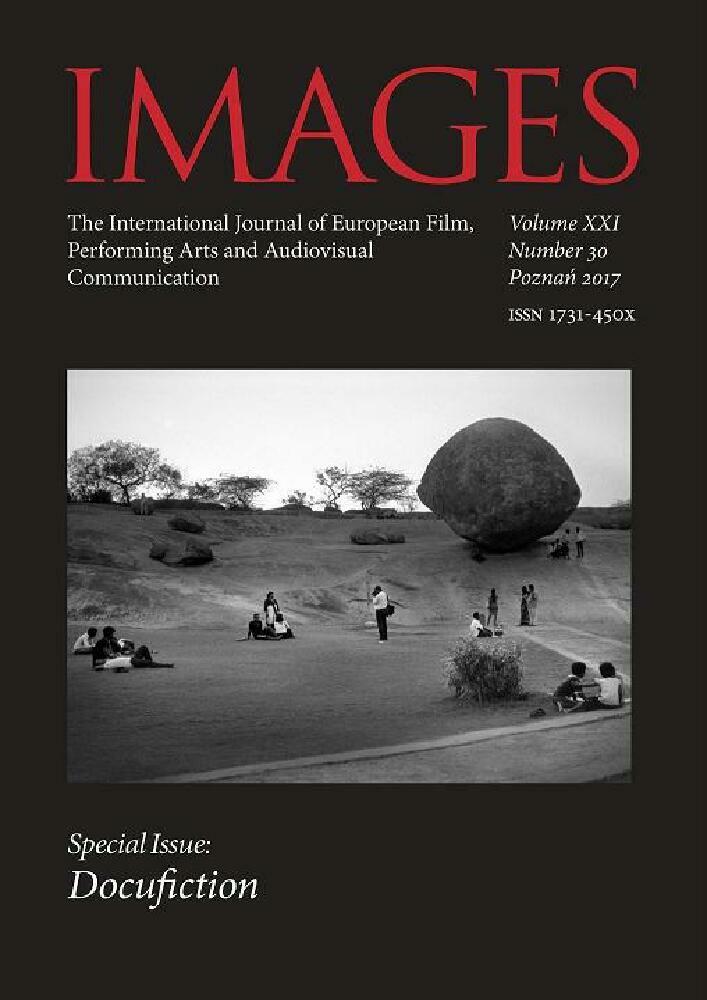Abstrakt
The article focuses on the That Dragon, Cancer, a computer game created by Amy and Ryan Green, which is about their son Joel’s disease and subsequent death. It analyses the means used to tell the story and deliver the emotions of the game’s authors: documentary elements and means of expression exclusive to the game medium (conscious use of failure, a form based on vignette games). It addresses the contexts of personal documentaries, their self-therapeutic aspect, and the phenomenon of “not-games” and “personal games”.
Bibliografia
Akl A., That Dragon, Cancer, Q&A With Developer Ryan Green, 2016, <http://blogs.voanews.com/techtonics/2016/01/22/that-dragon-cancer-qa-with-developer-ryan-green> [dostęp: 15.03.2017]
Bielak A., Z bliska i z dystansu. Rozmowa z Anetą Kopacz i Tomaszem Śliwińskim, 2015, <http://www.dwutygodnik.com/artykul/5719-z-bliska-i-z-dystansu.html> [dostęp: 10.03.2017]
Boudrealt S.-A., Small games, big feels: Storytelling with vignettes, 2017, <http://www.gdcvault.com/play/1024430/Small-Games-Big-Feels-Storytelling> [dostęp: 22.03.2017]
Campbell C., The problem with ‘walking sims’, Dear Esther developer clarifies debate on burgeoning genre, 2016, <http://www.polygon.com/2016/9/28/13076654/the-problem-with-walking-sims> [dostęp: 15.03.2017]
Dear Esther, When Is a Game Not a Game?, 2013, <https://thatsoundscool.wordpress.com/2013/05/30/dear-esther-when-is-a-game-not-a-game/> [dostęp: 15.03.2017]
Dear Esther, you’re not a real game at all, 2012, <https://venturebeat.com/2012/02/19/dear-esther-youre-not-a-real-game-at-all/> [dostęp: 15.03.2017]
Falkowska M., Gry osobiste, 2013, <http://www.dwutygodnik.com/artykul/4634-gry-osobiste.html> [dostęp: 10.03.2017].
Globan-Klas T., Społeczeństwo medialne, Warszawa 2005
Grierson J., Dokumentalizm [fragmenty], Europejskie manifesty kina. Od Matuszewskiego do Dogmy. Antologia. Wybór A. Gwóźdź, Warszawa 2002
Haase T., That Dragon, Cancer and the Limits of Catharsis, 2016,<https://eidolon.pub/that-dragon-cancer-and-the-limits-of-catharsis-5bfa18f28152#.ngwun4cmq> [dostęp: 15.03.2017]
Juul J., Sztuka przegrywania. Esej o bólu, jaki wywołują gry wideo, Kraków 2016
Kaplan S., A father’s tribute to his son who died of cancer: A video game of love and grace, 2016, <https://www.washingtonpost.com/news/morning-mix/wp/2016/01/12/a-fathers-tribute-to-his-son-who-died-of-cancer-a-video-game-of-love-and grace/?utm_term=.6d1920b28ab1> [dostęp: 15.03.2017]
Kozubek M., [Auto]terapeutyczny wymiar „rodzinnych” filmów Marcina Koszałki, „Kwartalnik Filmowy” 2011, nr 73 [133]
Liguziński S., Rozmowa z Tomaszem Śliwińskim, 2013, <http://www.pisf.pl/aktualnosci/wiadomosci/rozmowa-z-tomaszem-sliwinskim> [dostęp: 14.07.2015]
Lubelski T. (red.), Encyklopedia kina, Kraków 2003
Molina B., That Dragon, Cancer retells child’s battle with disease, 2016, <http://www.usatoday.com/story/tech/gaming/2016/01/13/dragon-cancer-retells-childs-battle-disease/78681384/> [dostęp: 15.03.2017]
Nacher A., Gry wideo wchodzą w dorosłość. W stronę lokalnej genealogii dyskusji wokół gier artystycznych. Badania gier – podejścia krytyczne, „Kultura Współczesna” 2016, nr 2
Odoerfer, M., Can titles like Gone Home and Dear Esther be called games?, 2016, <http://www.gamezone.com/originals/can-titles-like-gone-home-and-dear-esther-be-called-games> [dostęp: 15.03.2017]
Przylipiak M., Poetyka kina dokumentalnego, Gdańsk 2000
Samyn M., Not a manifesto, 2010, <http://notgames.org/blog/2010/03/19/not-a-manifesto> [dostęp: 15.03.2017]
Schell J., The Art of Game Design: A Book of Lenses, Burlington 2010
Schreiber P., Eksperymentalne komputerowe gry tekstowe lat 90. a ruch notgames, „Homo Ludens” 2014, nr 1(6)
Takeuchi C., Dys4ia: an autobiographical trans video game about changing gender, 2012, <https://web.archive.org/web/20120317022128/http://www.straight.com/article-633416/vancouver/dys4ia-autobiographical-trans-video-game-about-changing-gender> [dostęp: 15.03.2017]
Tanz J., Playing for Time, 2016, <https://www.wired.com/2016/01/that-dragon-cancer/> [dostęp: 10.03.2017]
Licencja

Utwór dostępny jest na licencji Creative Commons Uznanie autorstwa – Użycie niekomercyjne – Bez utworów zależnych 4.0 Międzynarodowe.
